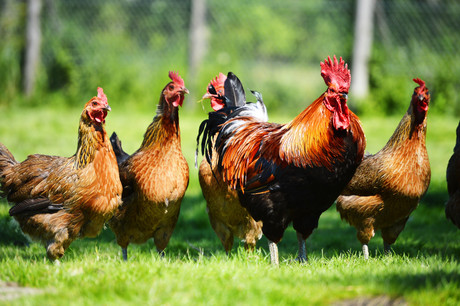Kraft Heinz moves away from caged eggs

With animal welfare becoming a more prominent issue in recent years, Kraft Heinz has announced it aims to improve the lives of egg-laying hens by removing cages in the supply chain. This follows other companies such as Nestlé, Wyndham Hotel Group, Subway, McDonald’s, Hungry Jacks, Woolworths, Aldi, McCain, Arnott’s, Mondelez and Hilton who have also made similar commitments to adopt cage-free policies.
As the world’s fifth-largest food and beverage company, Kraft Heinz has agreed to phase out caged eggs by 2025. Instead, products containing eggs, such as Heinz’s mayonnaises and aiolis, will be made with cage-free eggs in all 25 countries in which the company operates.
In its 2017 Corporate Social Responsibility report, it specified that all eggs must be produced by hens who have the space to walk, nest and carry out other natural behaviours in an open area.
“In all North American operations, we are on track to achieve this goal by 2025. In Europe, our supply is already 100 percent enriched housing or free-range, with a commitment to switch to 100 percent free-range eggs and egg-based ingredients by 2020,” the report said.
Animals Australia praised this cage-free commitment, with the Director of Farmed Animal Advocacy Jesse Marks stating: “Kraft Heinz has demonstrated that companies understand Australians expect brands to take animal welfare seriously. This commitment, which will see millions of hens spared from a crippling life in a cage, shows how leaders in the corporate sector can respond to community expectations.”
The movement towards improving animal welfare has been driven by public opinion, as more and more Australians oppose poor poultry conditions. McCrindle Research found that 84% of Australians believe that battery cages for egg-laying hens should be phased out.
“The community overwhelmingly opposes cages and more and more companies are cutting cage eggs from their supply chains. These should be clear signals to the egg industry that cage eggs are well past their expiry date," said Marks.
Currently, 11 million hens are confined to cages in Australia, but with more companies changing their policies this could dramatically decrease in coming years.
A pinch of saltbush for functional and nutritional benefits
An Australian desert plant could help food manufacturers improve protein quality and reduce...
Chemical food additive BHA under review in the US
The FDA identified butylated hydroxyanisole (BHA) as a top priority for review as part of its...
Call for comment on a new source of 2′-FL in infant formula products
FSANZ is calling for comments on an application to permit 2′-fucosyllactose produced from a...











